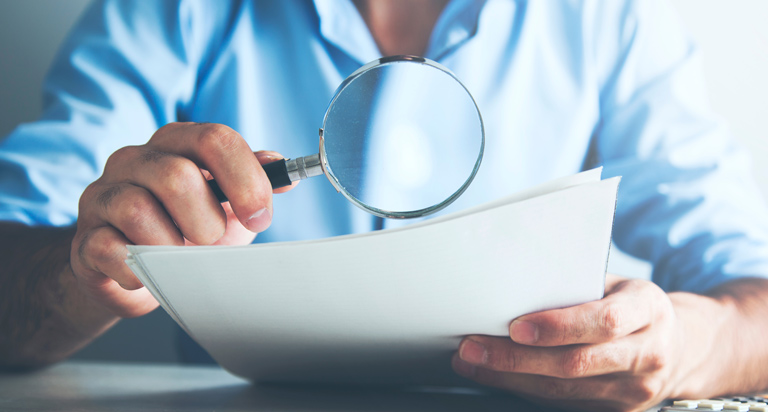How to Build Credit


Highlights:
- Credit is the ability to borrow money or obtain something of value with the understanding that you'll repay the lender at a later date, usually with interest.
- When you are extended credit from a lender — whether via a credit card, student loan, mortgage or other means — you are also being given an opportunity to build your credit history.
- Paying your debts on time, maintaining a mix of different types of accounts and keeping your balances low can all help ensure that the credit history you establish is positive.
Your credit scores can impact everything from getting a car loan to being approved for an apartment rental — meaning they're an essential piece of your financial profile. So where do you start when you have no credit history at all? Establishing a credit history from scratch can take some time, but once you learn how, the payoff is well worth the effort.
The basics: How credit works
Credit is the ability to borrow money or obtain something of value with an understanding that you'll repay the lender at a later date, usually with interest. Sources of credit include credit cards, student loans, mortgages and other types of loans — all of which fall under the umbrella of consumer debt.
There are two important factors to consider when it comes to credit: your credit scores and your credit reports. Both provide a view into what kind of borrower you are, but in different ways.
Your credit reports offer a detailed account of your credit behavior and include information such as your payment history, credit mix, account balances and the length of your credit history.
Your credit scores are three-digit numbers — ranging from 300 to 850 — that help lenders predict how likely you are to pay back a loan on time. Credit scores are calculated using information in your credit reports.
There are many different credit scoring models or ways of calculating credit scores. One model may place more importance on one factor, such as payment history, while another may give greater emphasis to something else.
When you are extended credit from a lender — whether via a credit card, student loan, mortgage or other means — you are also being given an opportunity to build your credit history. Paying on time, maintaining a mix of different types of accounts and keeping your balances low can all help ensure that the history you establish is positive.
How to establish credit when you have no credit history
It can be hard to know how to build a positive credit history when you're just beginning your credit journey.
These strategies can be a good place to start:
- Consider a secured credit card
One option is to open a secured credit card, which requires the user to make a deposit up front, often in the same amount as your credit limit. The card then works like any other credit card, with on-time payments contributing toward a positive credit history. Secured cards can work well for someone just beginning their credit journey because they are designed to help the user build credit history when they aren't able to qualify for a traditional credit card.
If you are a student, you might instead consider applying for a student credit card. You will likely have to provide proof you are in school in order to obtain this type of card, but once approved you can use the card to begin building your credit history.
- Become an authorized user
If you have a parent, spouse or other loved one with a history of positive credit behavior, you may consider becoming an authorized user on their credit card. As an authorized user, you will generally receive a physical credit card in your name, but it will be linked back to the primary account owner's credit reports. As an authorized user, you will benefit from the account holder's positive credit habits as well as your own. Be warned, however, that negative credit behavior by either of you will also affect both of you. So, be sure to keep up with any debts accrued on the joint account so as not to strain your relationship.
If you're in need of a loan rather than a credit card, a similar option is to find a cosigner. A cosigner is a person who agrees to be legally responsible for a debt if the borrower does not pay back a loan as agreed. This approach allows lenders to consider the co-signer's credit scores in lieu of your own. As a result, you may be able to secure better loan terms or qualify for a loan you might not otherwise get, but it also means that if you fail to pay, your cosigner will be on the hook for your debt.
- Take advantage of your existing good financial habits
If you're good at keeping up with your noncredit-related bills, you can ask your landlord or your utility companies to report your on-time payments to the three nationwide consumer reporting agencies (CRAs) — Equifax, TransUnion and Experian. These bills typically don't appear on credit reports, but if you know you have a positive payment history and very little credit activity, you can ask to have these noncredit-related payments reported to the three nationwide CRAs for consideration in determining your credit scores.
Similarly, if you have used a buy now, pay later (BNPL) program in the past and successfully kept up with your payments, you may be able to ask for that activity to appear on your credit reports.
BNPL plans are a type of consumer credit that allows shoppers to divide a large-ticket expense into multiple payments over a certain period of time. Some BNPL services don't report payment information to the three nationwide CRAs or may only report to one or two of them. However, the way BNPL payments are reported is still developing.
In an effort to reward consumers for positive repayment habits, Equifax encourages BNPL providers to report credit information and became the first nationwide CRA to formalize a process for including BNPL activity on credit reports.
How to build your credit history with a credit card
Building your credit history with a credit card is relatively simple as long as you use the card regularly and pay your balance in full each payment period. But first, you need to get approved for an account.
Start by researching the options available to you. One possibility is to apply for a card through the financial institution where you currently bank, or you can shop around for alternatives that offer the interest rate and rewards plan that best meets your needs. When trying to find the right card for you, be on the lookout for low fees and low or zero introductory interest rates. Just be sure to note when the introductory period will end and your interest rate will increase.
Once you've applied and been approved for a credit account, begin using the card and paying off your balance. Make small, frequent purchases, being sure to not spend more than you already have in your checking account. You may also want to pay attention to the cashback offers on your particular card, as you may get more valuable rewards when you use it to pay for things like travel, gas and food.
When it comes to paying your credit card, make your monthly payments on time, as that can help you build a positive credit history. Try to make at least the minimum payment each month, but if you can, paying more will reduce your debt and save you in interest in the long run. Your credit utilization rate (the amount of revolving credit you're using divided by the total credit available to you) is another important factor. It is generally recommended to keep your credit utilization rate at or below 30%, meaning if your credit limit is $1,000, try to keep your balance at $300 or less.
How to build your credit history without a credit card
There are also ways to build your credit history without a credit card. It's important to keep up to date with any existing loans you have. This includes mortgage payments, student loans, auto and personal loans and other types of debt. In most credit scoring models, lenders give your payment history the most weight.
If you don't have existing loans, you might consider applying for a small loan that you know you'll be able to pay off. If you are unable to qualify for a traditional loan, you could try getting a secured loan, which is backed by some type of collateral and is therefore less risky for the lender. Auto loans and home mortgages are both types of secured loans, as they are secured by their respective assets.
Credit-builder loans are another type of secured loan that can be particularly useful for those trying to build their credit history. Usually available through credit unions or community banks, credit-builder loans are aimed at helping consumers along their credit journey and generally have less stringent approval requirements than other types of loans.
With a credit-builder loan, the amount you borrow is put in a bank account held by the lender while you make the monthly principal and interest payments. At the end of the loan term, you receive the money. If you choose this option, be sure your bank or credit union is reporting your on-time payments to the three nationwide CRAs.
The importance of staying on top of your credit health
Your credit reports and scores are a key part of your financial profile. So, after learning how your credit scores and reports are created, it's vital to also learn how to keep them in good shape. Establishing good credit behavior can not only help you get approved for lines of credit, like a mortgage or a car loan, but it can also save you money by helping you qualify for lower interest rates.
On the other hand, a poor credit history can follow you around for a long time. Although no mistakes are permanent, late payments and other negative information will generally remain on your credit reports for seven years. Therefore, it's important to stay on top of your accounts and focus on building a positive credit history by paying your debts on time and keeping your credit utilization rate low. It can also be beneficial to keep paid credit cards open even if you no longer use them, as a lengthier credit history can have a positive impact on your credit scores.
Financial behaviors and credit mistakes to avoid
The biggest credit mistake to avoid is missing payments. Depending on the scoring model, your payment history typically accounts for the largest portion of your credit scores. As a result, late payments can have a significant effect on how lenders view you as a borrower. Maxing out your credit card (which can increase your credit utilization rate) and closing paid-off accounts (which will shorten your credit history) can also have a negative impact on your financial profile.
Failing to stay on top of your bank statements and monitor your credit reports is another mistake to avoid. Be sure to thoroughly review your credit card and bank statements each month, keeping an eye out for any suspicious activity that may indicate identity theft or other types of fraud. That way, if you spot something, you can report it and get it resolved before it turns into a bigger problem.
You should also regularly check your credit reports for potential signs of fraud and to make sure that all the information about you, such as your address and the spelling of your name, is correct.
How to get help with your credit journey
If you are struggling with how to build your credit history from scratch or simply implement good credit behaviors, the first step is learning everything you can about the process — from finding a credit card or loan that works for you to monitoring your credit scores and credit reports.



